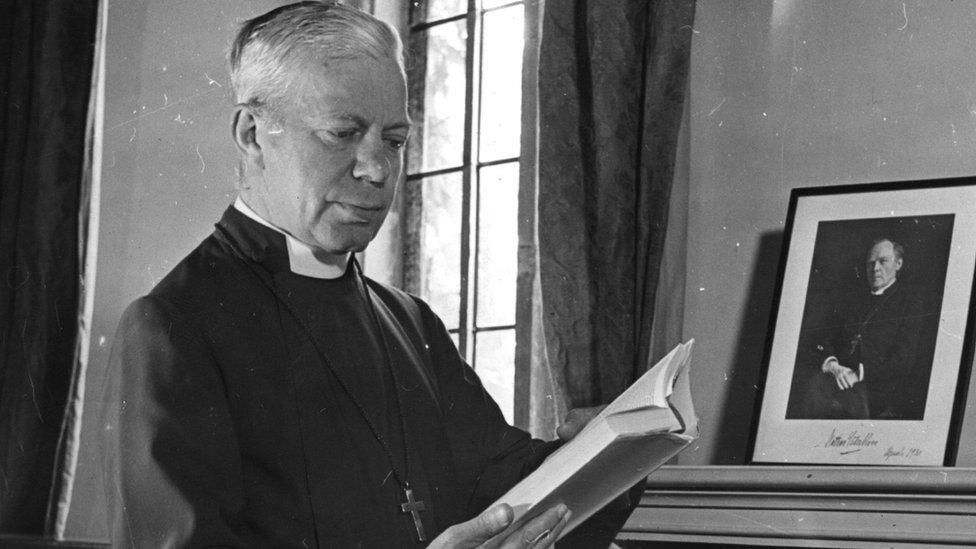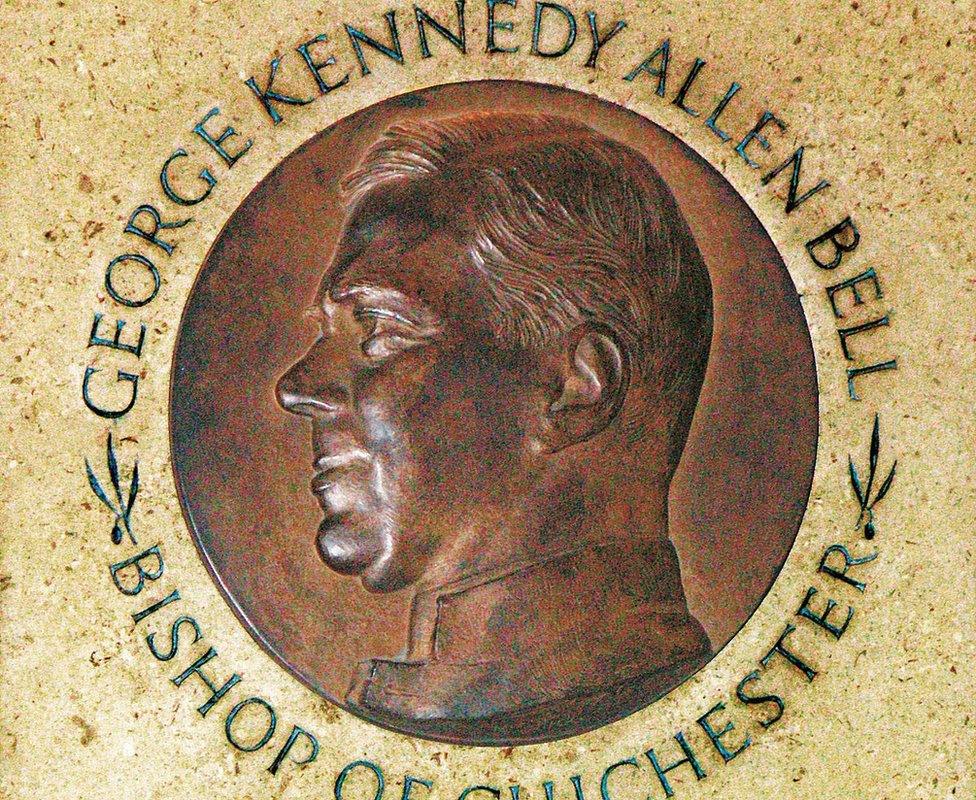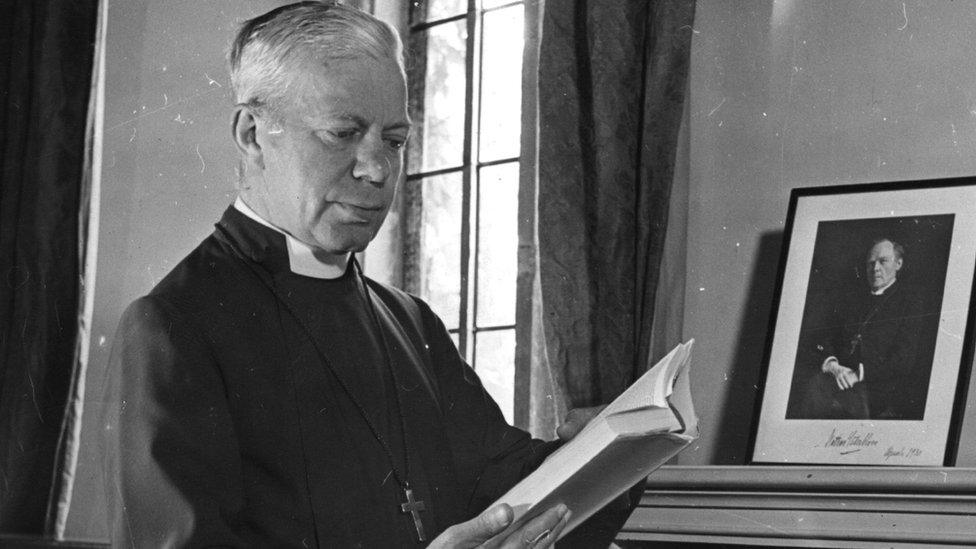Chichester Cathedral memorial to Bishop George Bell could be changed
- Published

The Rt Rev George Bell was Bishop of Chichester from 1929 until his death in 1958
Chichester Cathedral is considering changing a memorial to a former bishop after it paid compensation to a woman who claimed he sexually abused her.
The memorial hails Bishop George Bell as a "pastor, poet, patron of the arts and champion of the oppressed and tireless worker for Christian unity".
The Diocese of Chichester settled a civil claim made by the woman, who alleged she was abused as a child.
Current Bishop Dr Martin Warner issued a formal apology.
'Scantiest of evidence'
The woman claimed the Rt Rev George Bell began abusing her in the late 1940s when she was five years old.
The Cathedral Chapter said some found the description of Bishop Bell on the memorial problematic but it was felt to be appropriate in 1961 when the memorial was put in place.
"Changing, or adding to, a historic memorial is complex and it will take time to ensure that the cathedral's response to the memorial is both appropriate to Bell's historic legacy and to the circumstances following the settlement," it said in a statement.
Volunteer guides at the cathedral have been told they may leave Bishop Bell out of tours if they wish.

The Bishop Bell memorial describes him as a champion of the oppressed
The cathedral has already changed the name of its education centre from George Bell House to 4 Canon Lane.
However, journalist Peter Hitchens said an injustice was being done to Bishop Bell.
"There is a great rush to judgement by the Church, to trash the reputation of a great man," he said.
"It believed nobody would care when it pronounced on the scantiest of evidence on that George Bell was guilty of this dreadful crime and is now proceeding with amazing speed to try to wipe out his memory.
"Nothing has been proved against George Bell."
Bell was Bishop of Chichester from 1929 until his death in October 1958.
During World War Two he was known for championing the people of Germany and made a speech in the House of Lords in February 1944 opposing Churchill's policy of saturation bombing.
- Published9 February 2016

- Published20 January 2016

- Published22 October 2015
